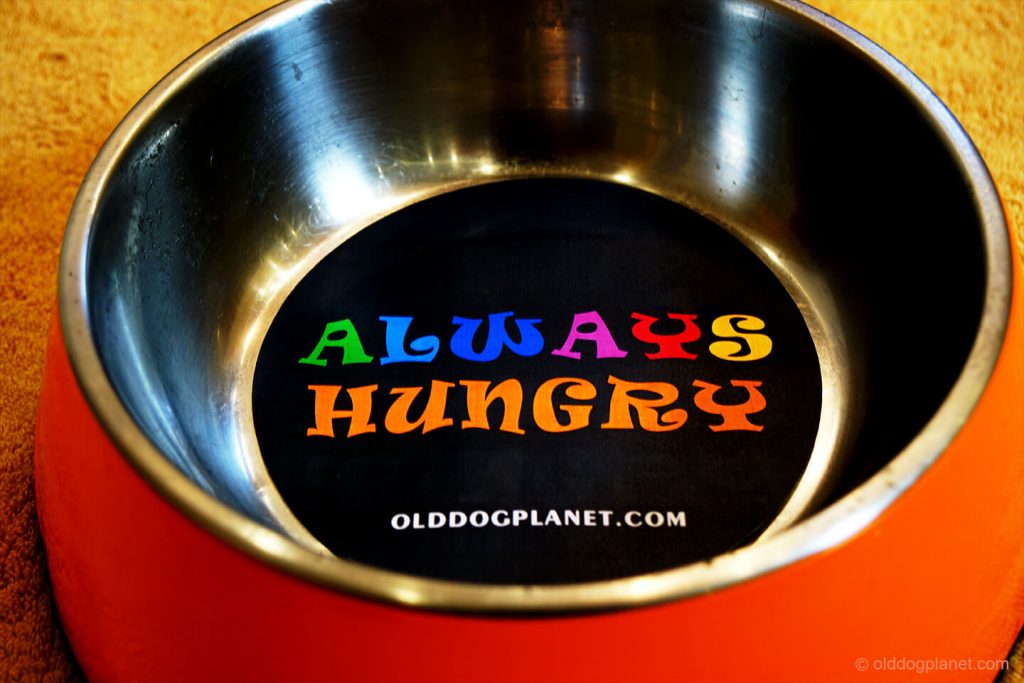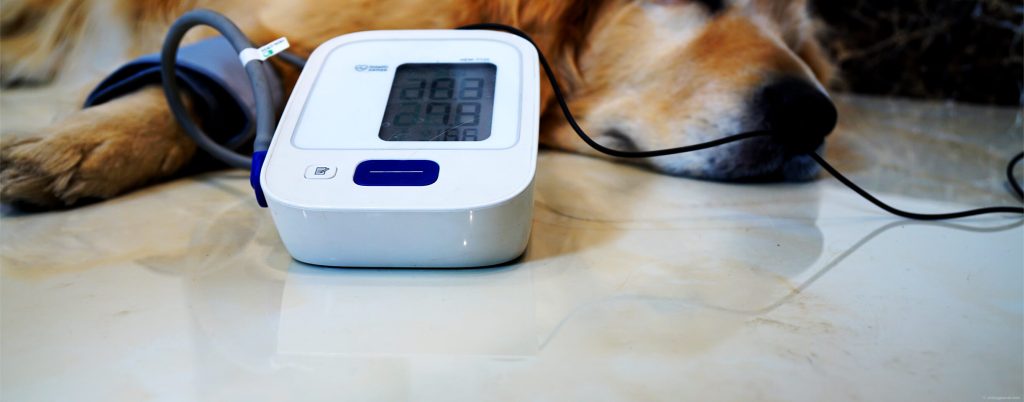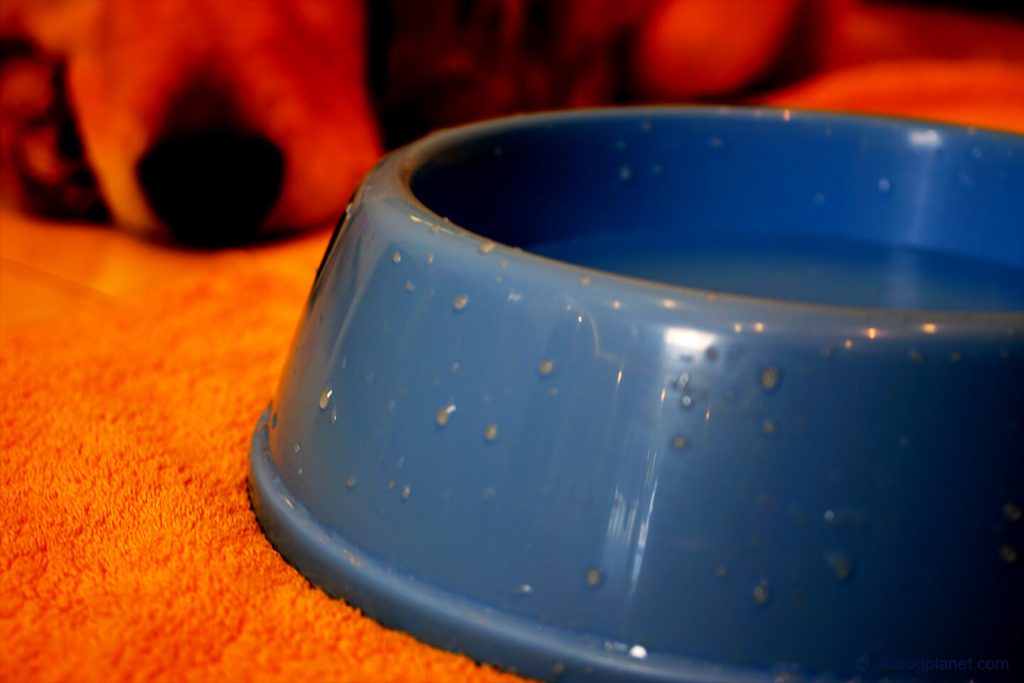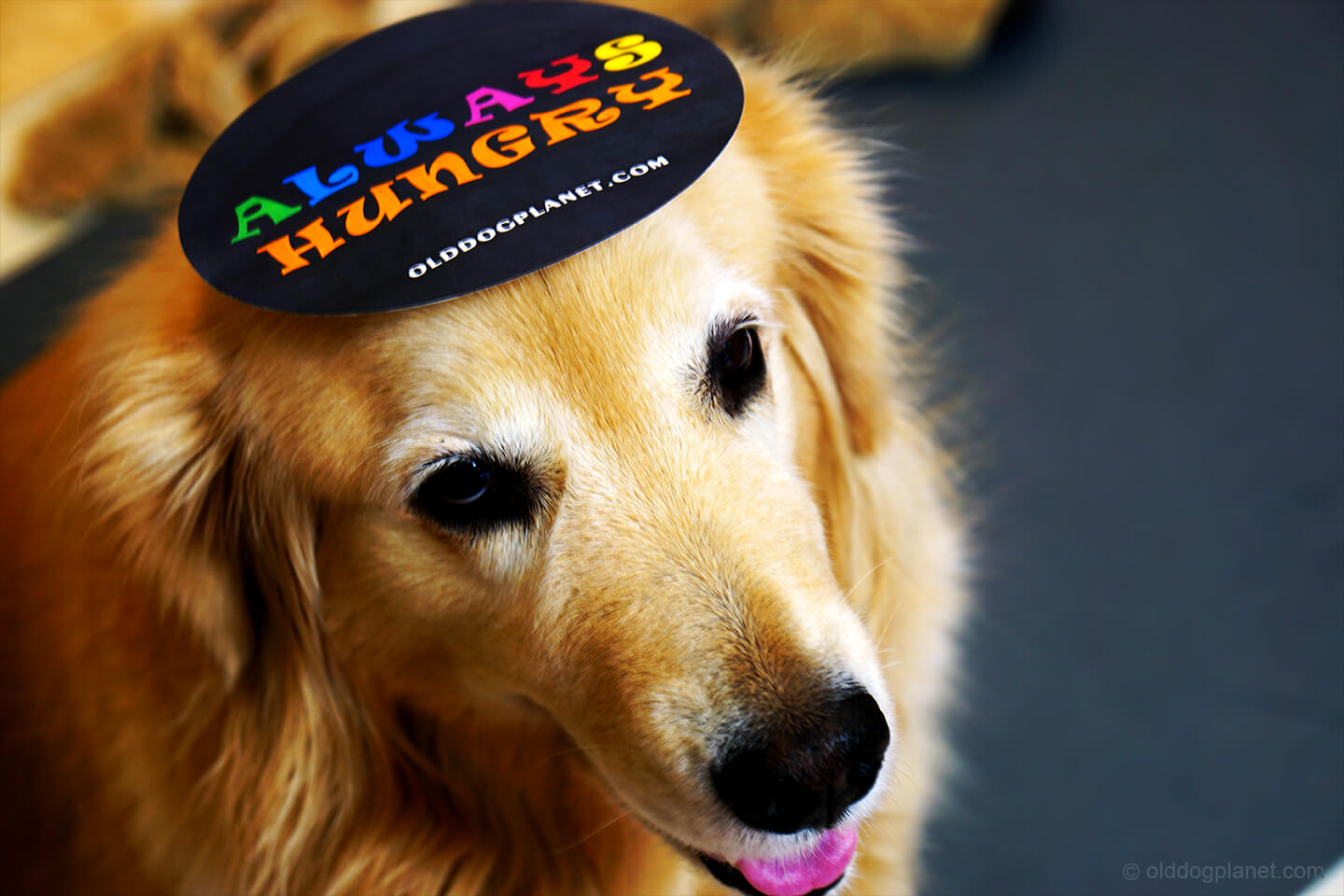
Weight loss or non-gain of weight is less common in older dogs compared to obesity. Obesity in senior dogs is more likely to catch the attention of dog owners, as evidenced by the best-selling weight control kibble for senior dogs. When an older dog loses weight, it may be a relief rather than a source of concern for its owner. In fact, if your senior dog losing weight but eating, this is a serious symptom that you should be aware of, as it may indicate a dysfunction in your older dog.
Why is senior dog losing weight but eating?
Generally, it could be due to a hyperthyroidism, diabetes or intestinal parasites.
- Hyperthyroidism
Hyperthyroidism occurs when a dog’s body produces too much thyroid hormone, which can increase the dog’s metabolic rate and increase the body’s daily energy expenditure, which means that even consuming the same amount of food as before can’t meet the body’s consumption needs, so you will find that your dog leaving you an empty dog food bowl every day, but getting thinner and thinner.
- How can we tell if an elderly dog has hyperthyroidism?
The following are the most common and intuitive symptoms:
- Excessive excitement that does not match the age of the old dog.
- Excessive drinking and polyuria. (Please refer to this blog post to learn more about urinary infection, a disease with the same symptoms)
- The frequency of defecation increased. Thyroid hormones play an important role in gastrointestinal motility, while excessive levels of thyroid hormone cause excessive gastrointestinal peristalsis, increasing the number of defecation.
- Unusual vomiting and diarrhea on a regular basis.
- Goiter. This is distinguishable by touching it. A dog’s thyroid gland is usually intangible. When goiter occurs, prominent glands can be felt by tracing the tracheal margins from the larynx to the thoracic inlet with the thumb and index finger.
- Shortness of breath even without intensive exercise or excessive ambient temperature. In general, dogs breathe at a rate of 15-30 breaths per minute. To see if the dog’s breathing rate is too fast, count the number of breaths he takes in one minute. If it is significantly higher than 30, the breathing rate can be considered abnormally fast.
- How can we tell if an elderly dog has hyperthyroidism?
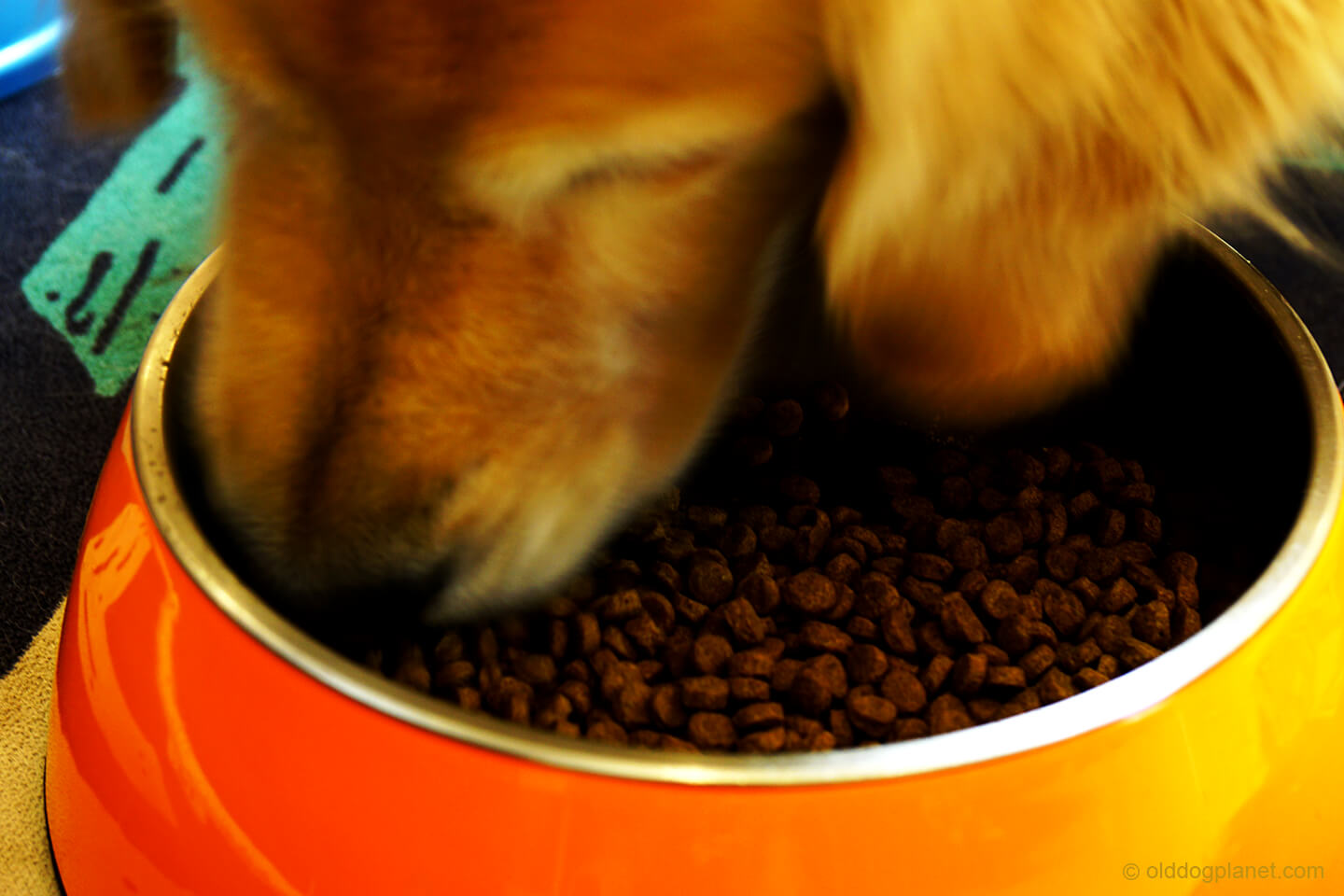
- Exogenous hyperthyroidism
Despite the fact that this is a very rare condition, I still have to warn owners of older dogs about it. Simply put, exogenous hyperthyroidism occurs when a healthy dog (without thyroid disease) eats something unexpected that contains thyroid hormones that can be absorbed, such as the stool of a dog that is receiving thyroid hormone medication.
Not to be alarmist, but the University of Illinois Veterinary Teaching Hospital has a real case of a 9-year-old Golden Retriever who developed typical hyperthyroidism symptoms after eating the feces of her roommate, a dog who was currently receiving 0.8 mg levothyroxine q12h for hypothyroidism. And 12 days after the owner of the two dogs was advised to clean the dog poo p in the yard (without any other intervention), the Golden Retriever was reported complete resolution of the hyperthyroidism clinical signs.
If you have more than one dog or pet, please manage their medicines and excrement to avoid being eaten secretly by your curious old dogs, especially if there are pets who are taking some medicines that are harmful to healthy dogs.
- Diabetes
When dogs have diabetes, blood sugar cannot enter the cells due to a lack of insulin or islet resistance, and a large amount of blood sugar accumulates in the blood, preventing the cells in the body that require sugar from receiving it normally. This directly causes the dog’s body cells to run out of sugar, an important “fuel”, forcing the cells to activate Plan B, which instructs the body to break down its own fat and protein (muscle) to use as an alternative fuel source. As a result, the dog becomes increasingly thin.
- How can we tell if a senior dog has diabetes?
The following are the most common and intuitive symptoms:
- Excessive drinking and polyuria.
- Increased appetite.
- Although the symptoms listed above are the most obvious signs of diabetes, they are easily confused with those of hyperthyroidism. To better distinguish diabetes, I recommend paying close attention to the following symptoms alongside the symptoms above:
- Ketosis halitosis (smells like fruit or rotten apples or chemicals or acetone).
- Cloudy eyes.
- Prone to multiple and recurrent purulent skin and urinary infections.
- These three symptoms are typical diabetic symptoms that differ from hyperthyroidism, and if one or more of them are observed, it may indicate that your senior dog has diabetes.
- How can we tell if a senior dog has diabetes?
If you suspect that your elderly dog has diabetes, you should take it to the vet as soon as possible for a diagnosis. The sooner the dog is diagnosed and treated, the sooner it will be able to return to normal life.
- Intestinal parasites
Intestinal parasites are nearly impossible to develop when your dog is regularly dewormed with deworming medication. However, there are always some naughty dogs frequently get intestinal parasites due to their mischievous behavior, including burying deworming pills in corners of the yard or spitting it in the kennel. Here are the parasites that cause dogs to lose weight:
- Roundworm. Roundworms (Toxocara Canis, Toxascaris leonine) are the most common intestinal parasites in dogs. Adult roundworms live in the dog’s gut and feed on the food the dog eats, which is why roundworms keep your old friend never stop eating without gaining weight.
- Hookworm. Hookworms use their hook-like “mouths” to attach to a dog’s intestinal wall. They feed on large amounts of blood in the tiny blood vessels of the intestinal wall, causing anemia, weakness, diarrhea and weight loss.
- Whipworm. Whipworm is a common parasite that can easily become infected when dogs groom themselves or come into contact with the feces of other animals. Infected dogs tend to experience weight loss, diarrhea and gas.
Actually, you don’t need to know how to diagnose your dog for parasites, all you have to do is give your dog the dewormer on time, let them eat all of the dewormer under your nose, and open their mouths to check if they have actually taken the entire deworming pill into their stomachs.
Final thoughts
If your older dog loses weight despite not reducing his food intake or eating a weight-control dog food, it could be due to a disease that affects his weight. Hyperthyroidism, diabetes, and intestinal parasites are common diseases that cause dogs to lose weight. Furthermore, while exogenous hyperthyroidism is a relatively uncommon condition in dogs, families with multiple dogs must exercise caution to avoid this situation.
Other serious diseases, such as cancer and tumors, are undeniably capable of causing weight loss in dogs. We didn’t discuss these serious illnesses in this blog because they have other obvious symptoms before the dog shows signs of weight loss.

